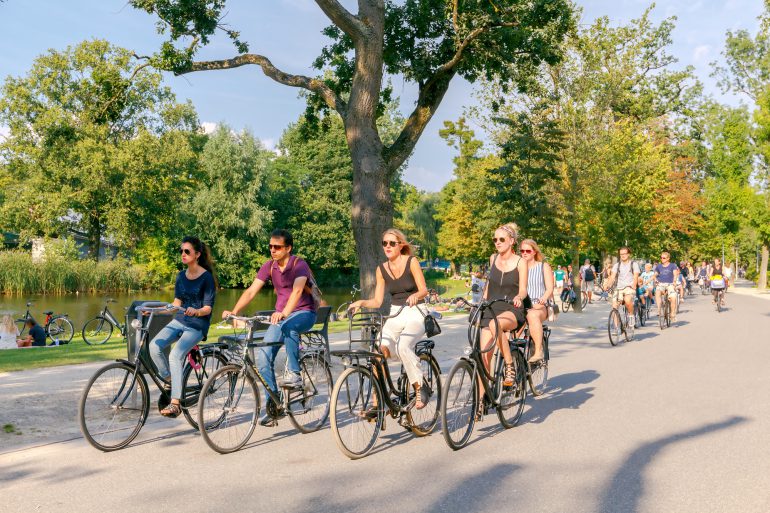Following a summer heated by the housing crisis, in which international students were warned not to come to the Netherlands unless they had arranged a place to stay already, the University of Amsterdam (UvA) is limiting the number of foreign students in popular studies. Despite being met with reservation by academic peers and the House of Representatives, UvA is moving ahead with the cap, starting in 2023.
Over the past fifteen years, the number of international students flocking to the Netherlands for higher education has grown faster than the number of domestic students. Last year, Dutch universities welcomed 115,000 foreign students – more than three times as many as in 2005, according to figures by Statistics Netherlands (CBS). Now, more than a quarter of first-year students in Dutch universities come from abroad – mainly from Germany, other parts of Europe, and some countries in Asia such as India and China. At UvA, they currently represent a third of the student body.
‘We have reached the point that Dutch students from Hoorn, Emmen or Amsterdam-West cannot take up popular studies, because they are being outcompeted by students from abroad,’ said UvA board chairman Geert ten Dam to NRC. Particularly, when it comes to popular studies such as psychology and political sciences, highly popular with international applicants, Dutch students are being ‘ousted’. As for the foreign students, finding a place to live has become near-impossible; according to a survey by the Interstedelijk Studenten Overleg (ISO) in collaboration with the National Student Union and the Erasmus Student Network, many international students are in a vulnerable position and reveal they feel as if they are treated as second-class citizens.
Pieter Duisenberg, chair of the Dutch universities’ association UvN, has revealed that institutions all over the country have been lobbying for years for caps in around twenty subjects, including media studies, future planet studies and communications, which are increasingly overwhelmed by international applicants. Just last year, Ten Dam advised the ministry to intervene, or else the university would need to take ‘unconventional measures’ to deal with the increasingly unsustainable situation, which has caused accommodation shortages and a heavy burden on the university staff. Additionally, when it comes to studies such as psychology, the number of international graduates has a direct effect on the Dutch healthcare system, says Ingmar Visser, director of the Faculty of Social and Behavioral Sciences: ‘part of the professional field is linked to the Netherlands. You need people who can practice clinical psychology in Dutch,’ he stressed to newspaper Het Parool.
However, not all of Ten Dam’s peers are on board for the cap. Maastricht University President Rianne Letschert has been one of UvA’s loudest critics, claiming the chairman’s call to limit the number of foreign students entering certain subjects in the university has left her with a ‘weird taste in the mouth’. Letschert is weary of the message the conversation is already sending out to freshly-arrived internationals: ‘more than half of our students and academic staff come from abroad’, she told NRC. ‘I hear from them they no longer feel welcome’. This highlights the diversity within Dutch universities: Maastricht, on the crossroads between the Netherlands, Belgium and Germany, has a very different experience than UvA or other less internationally focused universities. Still, the Ministry of Education, Culture and Science warned UvA that it is not permitted to set quota of this kind, and, that, if UvA would do so, the Education Inspectorate would be forced to intervene.
Despite this, UvA has indeed moved ahead with an experimental cap for the popular psychology and political sciences studies. Although excluding students based on nationality or language is not allowed, a maximum number of applicants will be admitted into these studies, in an attempt to curb the issues that the growing influx of internationals has caused. The exact details of the policy are yet to be refined, but Ten Dam has stressed foreign students will still be welcome to attend his university.
Written by Beatriz Negreiros
